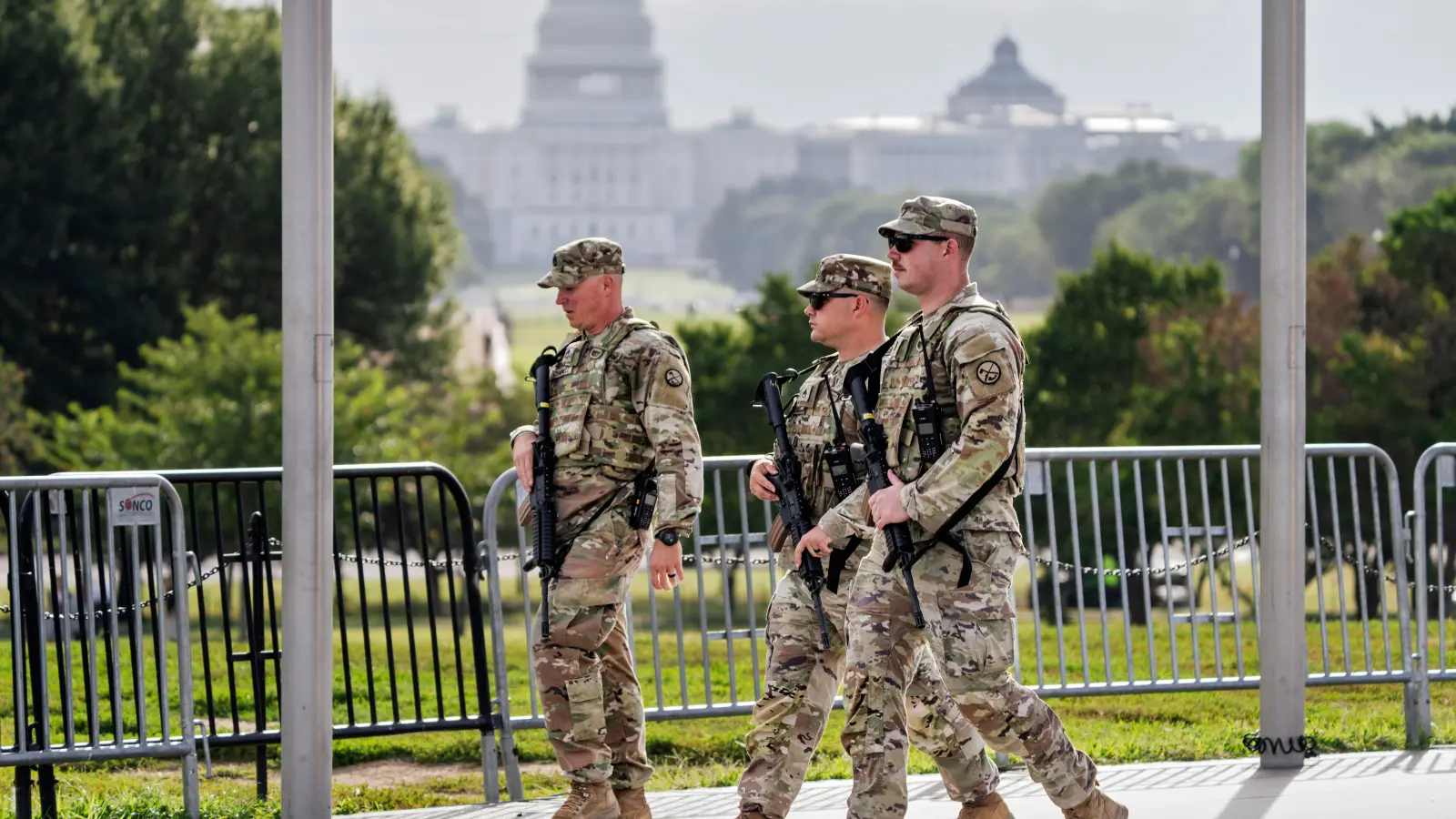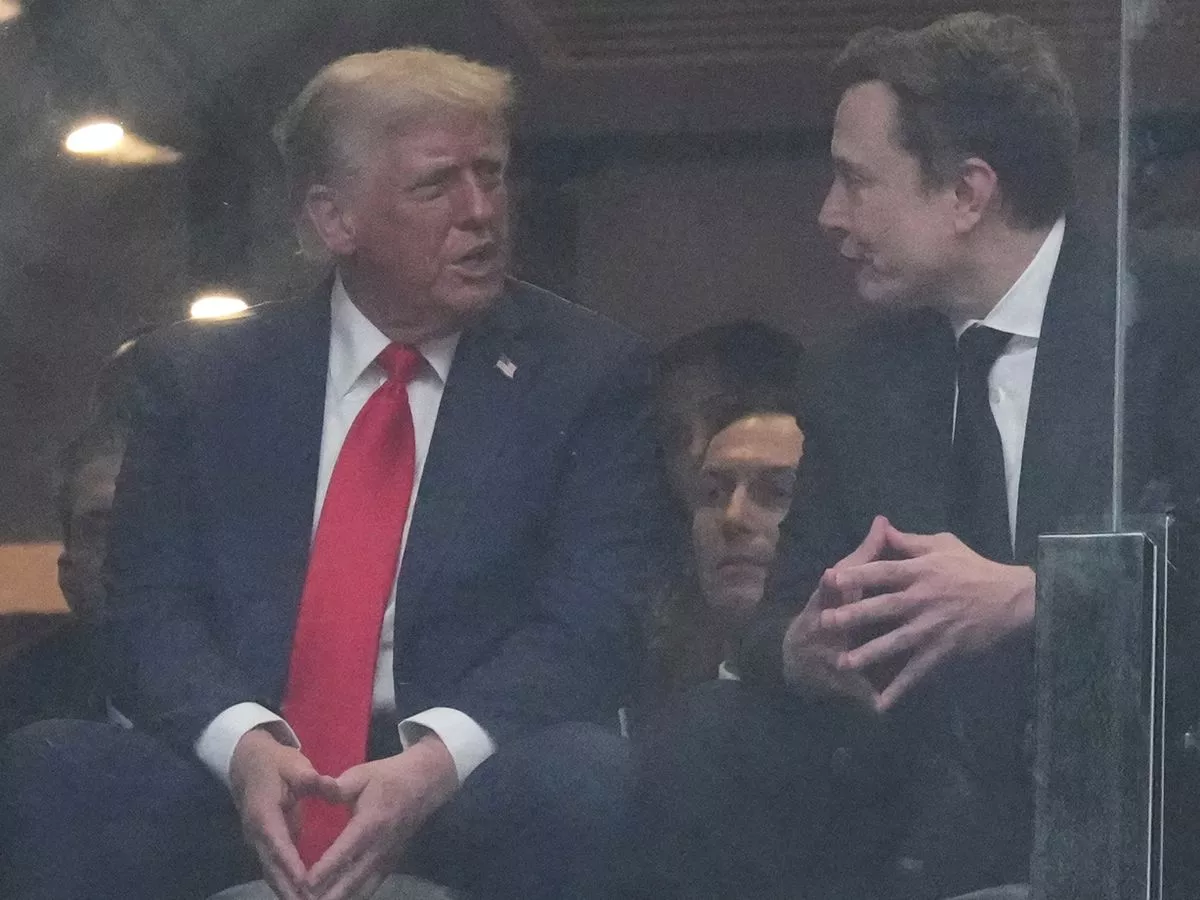Trump hasn’t targeted Denver with troops, but officials weigh plans in case of ‘federal overreach’
By Seth Klamann
Copyright denverpost

Days before National Guard troops were deployed on the streets of Los Angeles in June, Colorado Gov. Jared Polis signed a law aimed at limiting the ability of unwelcome military forces to enter the state.
In the four months since then, President Donald Trump has deployed troops in Washington, D.C., and has ordered them to Memphis and Portland. In Colorado, Polis and Denver Mayor Mike Johnston have said there are no indications that similar deployments are planned here. Both officials said they would oppose it if it were to happen, with Johnston promising a legal fight on “day one.”
“We have looked at options for what a potential deployment would look like,” Polis said in a statement to The Denver Post on Monday. “I would not support federal overreach to activate the National Guard outside of regular order, and we have received no communication from the federal government on any pending plans.”
Colorado’s new law, which is modeled after a similar law in Texas, stands as one roadblock: It prohibits National Guard units from other states from entering Colorado without the governor’s permission — unless they’re acting on federal orders and are “part of the armed forces.”
But its protections are limited. The law wouldn’t prevent Trump from federalizing the Colorado National Guard, as he did in California and is now doing in Oregon, one legal expert said. The state’s laws that limit interaction with immigration authorities also wouldn’t prevent a surge in federal law enforcement in the state — like the kind that’s underway in Chicago, where masked and militarized federal agents patrolled the streets en masse over the weekend.
As Trump has moved troops into Washington, announced plans in recent days to deploy the Oregon National Guard in Portland, and mused about sending them to other Democrat-run cities, he hasn’t publicly floated doing so in Denver or Colorado.
Even still, immigrant-rights advocates and local officials in Colorado have for months braced for a more forceful and public crackdown as Trump’s mass-deportation effort continues to shift.
Some of that concern predates even Trump’s return to office. Attorney General Phil Weiser told Democratic lawmakers late last year that his office was researching when the guard could be called out by the federal government. And more recently, Denver officials made plans for the coming days to hold a planning exercise to discuss how the city would respond to a National Guard deployment here.
“We’ve done everything we can at the state level,” said state Sen. Julie Gonzales, a Denver Democrat who supported the recent National Guard and immigration laws passed by the legislature. But state lawmakers and policymakers can only control so much, she said.
The Trump administration has repeatedly turned its eye to Colorado. The federal government is suing the state and its capital city over their immigration laws, and federal officials have demanded that local leaders repeal those policies. Aurora apartment complexes that lurched into the 2024 presidential campaign were raided by immigration agents in tactical gear shortly after Trump’s inauguration, and the president has lashed out at the state for its imprisonment of former Mesa County Clerk Tina Peters and for the portrait of Trump that once hung in the state Capitol.
“President Trump has said himself that he’s not happy with Colorado, and people are preparing for something else to happen,” said Violeta Chapin, a University of Colorado law professor who oversees that school’s immigration legal clinic. “Our clients individually are very, very worried, and we spend a lot of time to comfort them, but there’s no way to anticipate when it’s going to happen or how.”
Focus fueled in part by crime narrative
Trump has said he wants to deploy the military in blue cities that he claims are “ravaged” by crime, like Portland — though violent crime there has fallen and homicides have been cut in half this year. In social media posts over the weekend, the president said he would authorize the Oregon deployment to use “full force if necessary” to protect federal facilities against alleged “domestic terrorists.” State officials have said they will sue to challenge the move.
Guard forces are also set to deploy in Memphis, with the support of the state’s governor, alongside waves of federal law enforcement and 300 members of the Tennessee Highway Patrol.
Perhaps in response to the crime narrative that’s fueled Trump’s recent push for guard interventions, Polis praised Colorado’s recent decreases in violent crime rates in his statement to The Post. His office also listed more than $100 million in public safety funding that’s been threatened by the Trump administration and described legislative efforts to address crime rates.
Federal law would prevent troops, in Colorado or other states, from participating in direct law enforcement actions. That would theoretically limit any guard deployment to protecting federal buildings and monitoring immigration raids and arrests.
The state’s new law on deployments would serve as “a statement that’s very recent, that signals to everyone in our state that (elected officials are) taking this seriously as a matter of law,” said Doug Spencer, a professor at the CU law school. “… It does provide a very strong statement to our citizens and to our people — ‘We really mean it!’ — for how much that’s worth.”
Spencer said the law would likely serve as a springboard for a lawsuit challenging a guard deployment. Lawrence Pacheco, a spokesman for Attorney General Phil Weiser, declined to comment on the law’s applicability, “since it would be the subject of litigation.”
The lack of a headline-grabbing show of force so far does not mean that Colorado has been spared a role in the president’s pledge to deport immigrants who lack proper legal status. Local arrests of immigrants have skyrocketed.
Since the larger-scale raids earlier this year, immigration enforcement in the state has focused more on smaller workplace raids and individual arrests, said Jordan Garcia, the Colorado immigration rights program director for the American Friends Services Committee.
Polis has sought to avoid public fights with the federal government over immigration, unlike his more publicly defiant counterparts in Illinois and California. He’s repeatedly said Colorado is not a “sanctuary state,” and as troops fanned out in L.A., he sought to comply with a federal immigration subpoena until a judge ordered him not to.
Opposing ‘federal overreach’ with guard
But Polis has called for more transparency in Immigration and Customs Enforcement operations, defended the legality of the state’s immigration laws and said he would oppose a guard deployment in the state.
He noted in an earlier statement that National Guard members “play an important role in protecting our state during natural disasters and emergencies at home and abroad, such as during the current fire season.”
In late August, Trump signed an executive order that, among other things, required each state’s guard to create a special unit dedicated to “quelling civil disturbances” and “ensuring … public safety and order,” available for “rapid mobilization.”
Colorado National Guard spokesman Sgt. Joseph VonNida deferred questions about the state’s version of that unit to the Department of Homeland Security. In an email Friday, Pentagon spokeswoman Maj. Jennifer L. Staton said the Department of Defense was “reviewing the order and its specific requirements.”
Elizabeth Jordan, an immigration lawyer who runs the University of Denver’s immigration legal clinic, said federal immigration strategies have repeatedly shifted over the course of Trump’s first several months in office, which makes it difficult to assess what may come next.
Garcia called it “disorienting.”
“I think the administration has maybe moved on to the next thing,” Jordan said of the potential for a guard deployment in Colorado. “… What they’re doing right now is a whack-a-mole strategy designed to overwhelm people.”
In Denver, Johnston’s office declined an interview request, and city spokesman Jon Ewing said officials have “no reason to believe anything is in the works and we would immediately take legal action were that to change.”
Still, the city’s Office of Emergency Management is planning to hold a tabletop exercise — effectively a planning discussion among city officials — to plan for the possibility of the guard being deployed in the city, said spokeswoman Loa Esquilin-Garcia.
But she stressed that the office organizes similar discussions to “prepare for everything,” and she said the exercise’s existence didn’t indicate that the city expected a deployment anytime soon.
“We have a scenario,” Esquilin-Garcia explained. “How are we going to then respond to something like this — what resources, what partnerships, who do we need to bring to the table for something like this?”
The Associated Press contributed to this report.
Stay up-to-date with Colorado Politics by signing up for our weekly newsletter, The Spot.



